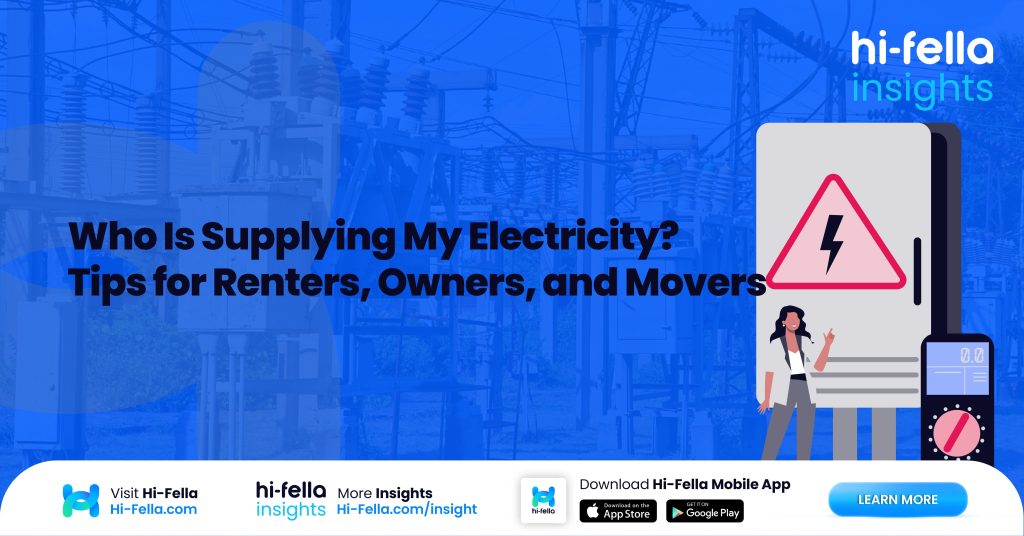Understanding who supplies your electricity is more complex than simply paying a bill each month. Whether you’re a renter, a homeowner, or someone moving into a new place, it’s important to know how your electricity supply works, who is responsible for providing it, and how you can take control of your energy choices. Many people aren’t fully aware of the distinction between utility providers and electricity retailers or how to navigate the billing structures. This guide will explain everything from identifying your supplier to understanding how local regulations and energy policies can impact your electricity pricing and supply.
In this article, we will break down the process, providing you with the essential knowledge needed to make informed decisions about your electricity supplier.
Table of Contents
Understanding Who Supplies Your Electricity: The Difference Between Utility Providers and Retailers
When it comes to electricity, there are two key players: utility providers and electricity retailers. Understanding the roles of each will give you a clearer picture of who is actually supplying your electricity.
Utility Providers
The utility provider is responsible for the infrastructure that brings electricity to your home or business. This includes maintaining the power lines, transformers, and substations, as well as responding to power outages. Essentially, they are the ones who manage the distribution and delivery of electricity to your location. Utility companies are often regulated by state or federal authorities, which control the rates they can charge for delivering electricity.
Utility providers don’t offer choices when it comes to the price or the plan you’ll pay for electricity — that’s where electricity retailers come into play.
Electricity Retailers
Electricity retailers, on the other hand, sell electricity to consumers. They work with the utility provider to supply the electricity, but they set the prices and energy plans. Depending on where you live, you may have the option to shop around for a retailer who offers a plan that best suits your needs. These retailers can offer various pricing structures, such as fixed rates, variable rates, or green energy options.
In deregulated energy markets, consumers can choose from a variety of electricity retailers. This gives you the power to compare rates, terms, and even switch retailers if you find a better deal. However, if you’re in a regulated market, your utility provider may also serve as your retailer, and your options for shopping around might be limited.
How to Identify Your Electricity Supplier: A Step-by-Step Guide for Renters and Homeowners
Whether you’re a renter or a homeowner, identifying who supplies your electricity is an important step in managing your utility bills and making informed decisions about your energy usage.
1. Check Your Electricity Bill
The easiest way to identify your electricity supplier is by checking your monthly electricity bill. Most bills will list both your utility provider and your electricity retailer (if applicable).
- If you’re in a deregulated market, you’ll likely see the name of your retailer listed in the supply section of your bill. The utility provider will be listed separately, under the delivery section, which details the infrastructure costs (e.g., maintaining power lines).
- In regulated markets, the utility provider and the retailer may be the same, so you may only see the utility company’s name.
2. Contact Your Local Utility Company
If you’re unsure or the information isn’t clear on your bill, you can contact your local utility provider. They can confirm who your current electricity retailer is or provide additional details about how to switch to a new retailer.
3. Use Online Resources
In many regions, you can use online portals to verify your electricity supplier. Websites like Energy.gov or specific state websites often have resources for consumers to find their suppliers, compare rates, and explore green energy options. Some states have independent energy comparison websites that can help you make an informed decision when choosing a retailer.
4. Review Your Contract Terms
If you’re working with an electricity retailer, your contract should clearly outline the pricing terms, including whether the rate is fixed or variable. These contracts often come with renewal notices or an end date, allowing you the opportunity to switch providers if you find a better deal.
Tips for Renters: Navigating Electricity Contracts and Avoiding Surprises
As a renter, you may have some unique challenges when it comes to managing your electricity supply. Here are some tips to ensure that you are not caught off guard by unexpected charges or misunderstandings about your electricity plan.
1. Understand Your Lease Agreement
Before moving into a new rental, review your lease agreement to understand whether you are responsible for setting up your own electricity supply or if the landlord handles this for you. Some landlords include electricity costs in the rent (though this is becoming less common), while others will expect you to set up the service yourself.
2. Can Renters Switch Energy Suppliers?
In some regions, renters can switch electricity suppliers, just like homeowners, especially in deregulated markets. However, in regulated markets, the landlord may have already signed a contract with a specific utility provider or retailer, and you might not have the flexibility to change.
If you are able to switch suppliers, take the time to compare options to find the best rates and plans that suit your energy usage.
3. Utility Deposits and Fees
Renters should also be aware of potential utility deposits. Some utility providers may require a deposit before turning on service, especially if you don’t have a strong credit history. Be sure to ask your utility provider about any required deposits and whether they can be waived or refunded after a certain period.
4. Negotiating with Your Landlord
If your landlord is responsible for covering the cost of electricity, it’s still a good idea to ask about the utility company and the energy plan they use. Negotiating transparency with your landlord can help ensure there are no surprises with your utility bills. For instance, if you notice high energy consumption due to inefficient heating or cooling, you might want to address these issues with your landlord.
Understanding the Impact of Local Regulations and Energy Policies on Your Electricity Supply
Local regulations and energy policies play a significant role in determining how electricity is priced, the options available to consumers, and which suppliers you can choose from. These factors are especially important in regions with deregulated energy markets.
1. Energy Deregulation
Energy deregulation refers to the process of allowing competition among electricity retailers. In deregulated markets, consumers can shop around for the best energy rates and plans. However, not all areas have deregulated energy markets. In regulated markets, the local utility provider is the sole supplier, and customers don’t have the ability to choose their retailer.
2. Green Energy Initiatives
In some regions, local governments promote green energy by offering incentives or requiring a percentage of energy to come from renewable sources. If you’re interested in supporting clean energy, look for retailers that offer green energy plans or contact your utility provider to inquire about renewable energy options.
3. State-Specific Laws
Each state in the U.S. may have different laws affecting electricity supply. For example, in California, there are stringent environmental regulations aimed at reducing carbon emissions, which can impact electricity pricing. In contrast, states like Texas have fully deregulated energy markets, allowing consumers to choose their suppliers freely.
Join Hi-Fella Today!
Navigating the complexities of electricity supply can be challenging, but with the right knowledge, you can make informed decisions and manage your utility costs effectively. Whether you’re a renter, a homeowner, or someone who is moving, understanding who supplies your electricity and how to navigate contracts is essential.
To help you stay ahead in today’s competitive energy landscape, Hi-Fella provides a global platform that connects you with trusted energy suppliers and service providers. By joining Hi-Fella, you gain access to a network of industry leaders and energy solutions that can enhance your electricity purchasing decisions, whether for residential or commercial purposes.
Hi-Fella enables businesses and individuals alike to stay on top of the latest energy trends, make sustainable choices, and ensure they’re making the best possible decisions when it comes to their electricity supply.








